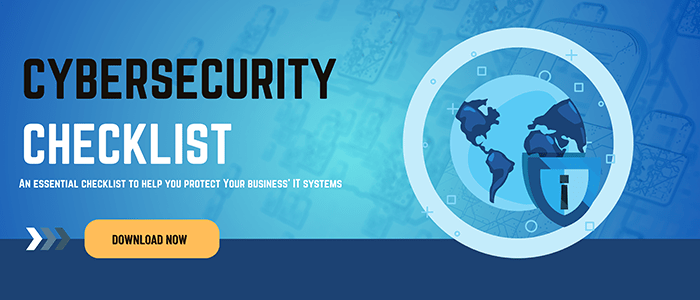Preparing for Cyber Insurance Audits

Cybersecurity is no longer just a technology issue, it’s a business risk issue. And for many organizations, cyber insurance has become a critical layer of protection against the financial and operational fallout of a cyberattack.
But in today’s landscape, securing or renewing a cyber insurance policy is far more complex than simply signing up and paying a premium. Insurers now require proof, detailed, auditable proof that your organization has robust technical controls and documented security practices in place.
At PCG IT, we help businesses prepare for cyber insurance audits every day. Our goal is to bridge the gap between technology, policy, and compliance, ensuring you’re not only covered, but confident when an auditor comes calling.
Here’s what you need to know to make sure your organization is technically and procedurally ready for your next cyber insurance audit.
Understanding What Cyber Insurance Auditors Look For
Cyber insurance underwriters assess one thing above all: risk. They want to know how likely your organization is to experience a breach and how effectively you can mitigate or recover from one.
To evaluate that risk, insurers focus on two major areas:
- Technical Readiness: Are your systems protected with proven, measurable security controls?
- Procedural Readiness: Do you have documented policies, response plans, and employee training in place?
In practice, this means auditors will review your cybersecurity posture across several key domains:
- Endpoint Protection – Are all devices monitored and secured with next-generation antivirus and EDR (Endpoint Detection & Response)?
- Network Security – Are firewalls configured properly, and is multi-factor authentication (MFA) enforced for remote access?
- Data Backup & Recovery – How often are backups performed, and are they tested regularly?
- Access Controls – Are permissions aligned with the principle of least privilege?
- Incident Response – Do you have a written and tested plan to respond to a breach?
- Employee Awareness – Are users trained regularly on phishing, password security, and safe data handling?
Auditors don’t just look for technology, they look for evidence that those protections are active, maintained, and enforced.
The New Reality: Insurance Requirements Are Getting Tougher
In the early days of cyber insurance, coverage was straightforward. But as ransomware and data breach incidents skyrocketed, insurers faced unprecedented losses. As a result, underwriting standards have evolved dramatically.
Today, many carriers won’t issue or renew policies unless your organization can demonstrate compliance with specific security measures, such as:
- Multi-factor authentication (MFA) across all critical systems
- Encrypted backups (preferably offline or immutable)
- Endpoint detection and response (EDR) solutions
- Documented incident response and business continuity plans
- Regular vulnerability scans or penetration tests
This shift means that preparation isn’t just about passing an audit, it’s about building a security foundation that qualifies your business for affordable coverage in the first place.
At PCG IT, we’ve seen many organizations caught off guard when renewals are delayed or denied due to missing documentation or weak controls. The key is to treat insurance compliance as an ongoing readiness process, not a last-minute checklist.
Building Technical Readiness
Technical readiness starts with visibility knowing exactly what assets, systems, and risks exist in your environment.
Here’s how we guide our clients through the process:
- Baseline Assessment: Conduct a full audit of your current security tools, configurations, and vulnerabilities.
- Gap Identification: Compare your environment against cyber insurance standards (such as MFA, encryption, and backup practices).
- Remediation Plan: Prioritize fixes based on impact and cost-effectiveness.
Once the foundation is set, focus on automation and monitoring. Continuous tools like EDR, SIEM (Security Information and Event Management), and vulnerability scanning give insurers confidence that your defenses are active not just on paper.
Additionally, maintaining offsite, immutable backups and proving that they’re tested regularly can make or break your coverage eligibility.
At PCG IT, our managed cybersecurity services include proactive monitoring, compliance alignment, and reporting documentation that supports your insurance audit directly. When you’re technically ready, you’re always audit-ready.
Strengthening Procedural Readiness
Even the strongest technology stack can’t compensate for weak or undocumented procedures.
Auditors want to see that your organization has formal processes for preventing, detecting, and responding to security incidents.
Start with these essentials:
- Document Your Policies: Maintain clear, updated cybersecurity policies including acceptable use, password management, data retention, and remote access.
- Create (and Test) an Incident Response Plan: Outline exactly who does what in a cyber event. Conduct tabletop exercises at least annually.
- Implement a Security Awareness Program: Employees remain the first line of defense. Regular phishing simulations and training demonstrate measurable engagement.
- Maintain Vendor Risk Assessments: If third parties access your systems or data, you’re responsible for their security posture, too.
At PCG IT, we help clients formalize these procedures through custom policy creation, compliance documentation, and mock audit preparation, turning complex technical information into clear, auditor-ready records.
Why Preparation Pays Off
Preparing for a cyber insurance audit might feel like another layer of red tape, but it delivers real value beyond coverage.
Organizations that embrace readiness typically see:
- Lower Premiums – Insurers reward strong cybersecurity with better rates.
- Reduced Risk Exposure – Regular assessments identify vulnerabilities before attackers do.
- Faster Recovery Times – Tested backups and response plans minimize downtime.
- Improved Client Trust – Demonstrating compliance enhances your credibility with partners and customers.
Simply put, cyber insurance audits force you to strengthen the very systems that protect your reputation and continuity.
Partnering with Experts for Confidence and Clarity
Navigating cyber insurance requirements can be overwhelming especially for organizations without a dedicated compliance officer or cybersecurity department. That’s where partnership makes all the difference.
At PCG IT, our team combines hands-on technical expertise with compliance insight. We help businesses:
- Conduct pre-audit assessments and mock reviews
- Implement and document required technical controls
- Align procedures with insurer and regulatory standards
- Prepare audit-ready reports and documentation
Our mission is simple: to make compliance and security achievable, not stressful.
When your technology environment and internal processes work together, cyber insurance audits become an opportunity, not an obstacle.
The Bottom Line
Cyber insurance is no longer optional and neither is preparation.
By aligning your technical defenses and procedural practices, you not only improve your odds of passing an audit but also strengthen your resilience against real-world threats.
At PCG IT, we help businesses turn cybersecurity requirements into a roadmap for smarter protection, lower risk, and greater peace of mind.
Because readiness isn’t just about insurance, it’s about ensuring your business can face tomorrow’s threats with confidence.
PCG IT is a managed service provider who has been proudly serving New Hampshire, Maine, and Massachusetts for decades. We provide complete technology solutions to local small and medium-sized businesses. It’s always been our goal to provide enterprise-level IT solutions to the small business sector at competitive prices. Schedule a complimentary technology assessment today!



